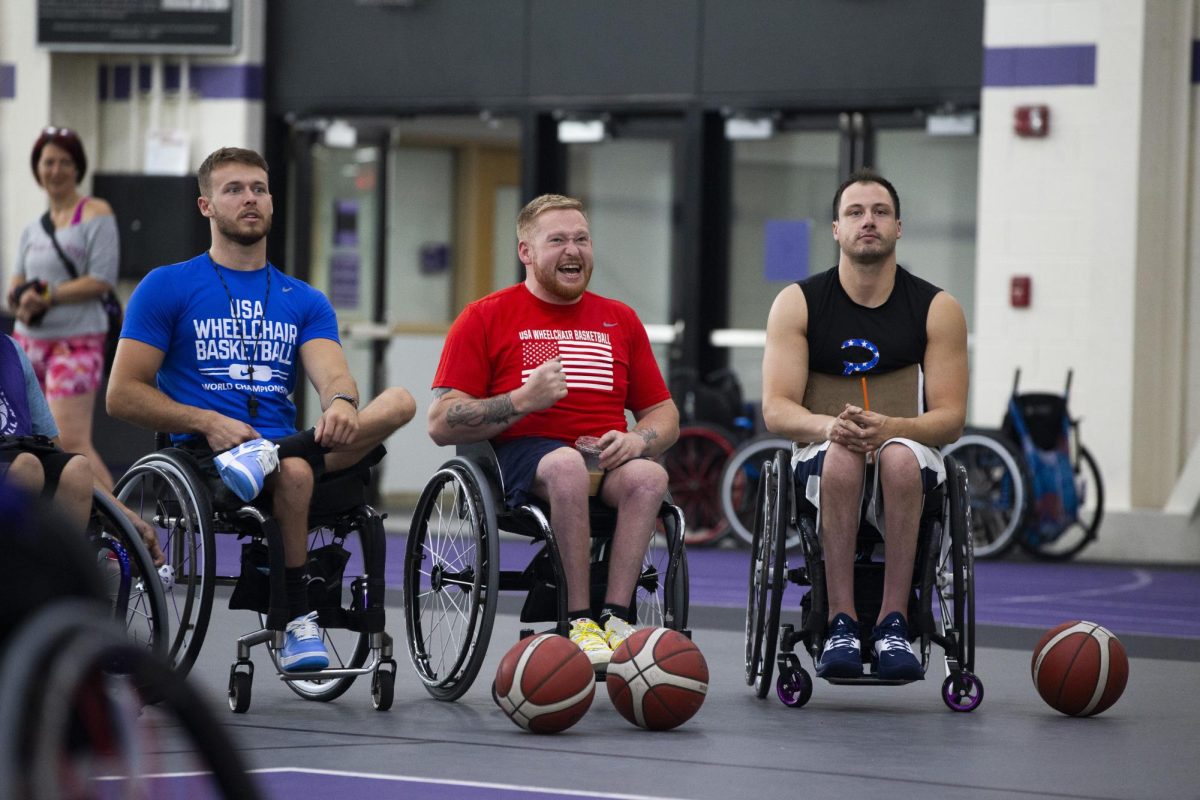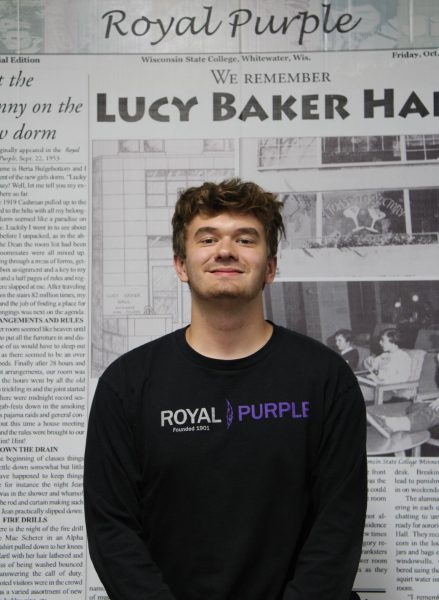Winning a national championship is somehow not the only peak moment of Jake Williams’ year.
After coaching UW-Whitewater to their first NWBA Men’s Championship since 2016, he worked on his swift transition back to his playing roots. His training for the Paris 2024 Paralympics began.
“They are different forms of fulfillment as an athlete,” Williams said. “It’s like deciding between two kids.”
Williams is one of 14 athletes and coaches associated with UWW competing at the Paralympic Games. All 14 individuals are participating in wheelchair basketball, with seven men and seven women heading to Paris.
A majority of the Warhawk-based athletes are competing with the highly-respected Team USA programs, with eight athletes and two coaches highlighting the teams. The country has won 23 combined medals, including the men’s team coming off of two straight first-place finishes, and the women’s team winning three of the last five Paralympic Games.
“It really gives a sense of pride for our small Division III university,” Team USA men’s wheelchair basketball player John Boie said. “It says a lot about the university and the support they have for adaptive athletics and people with disabilities in general.”
For the men’s team, half of the Warhawks representing Team USA are competing for, at least, a second gold medal. Boie is going for a second, while Williams and former Warhawk Nate Hinze are going for a third.
History is also present on the roster. At just 19 years old, UWW junior AJ Fitzpatrick is the youngest athlete to ever make a Team USA wheelchair basketball roster. Just like his head coach, he is competing in the Paralympic Games just over five months after winning a collegiate national championship.
“AJ got here when I got here, and he worked really hard,” Williams said. “It’s more of a mentorship role for Team USA; I don’t treat him differently than how I do as a [coach].”
Recent graduate Talen Jourdan is following the same path as Williams and Fitzpatrick, while former player Jeromie Meyer concludes the heavy Warhawk presence on the men’s wheelchair basketball team.
“[UWW] is a place where guys come; they eat, sleep and breathe wheelchair basketball,” Williams said. “So there’s no excuse why you can’t get better.”
Two former Warhawks highlight the Team USA women’s wheelchair basketball roster. Becca Murray was a part of three-straight UWW national championship-winning teams from 2012-2014, and Lindsay Zurbrugg played four seasons with the Warhawks before playing her graduate season at the University of Alabama in the 2021-22 season.
The Warhawk representation does not stop there. Two coaches also have connections to UWW, including Team USA women’s wheelchair basketball head coach Christina Schwab. While her playing days came with the University of Illinois, she works as the Manager of the Learning Communities Program at the university, along with having a strong Wisconsin background.
“I have been involved in wheelchair basketball since I was 11 years old,” Schwab said. “I am a Wisconsin kid, so I grew up here and thought about going to Whitewater, but they didn’t have a women’s program at the time.”
Schwab is not the only Team USA athlete still employed at UWW, as Williams is the Warhawk men’s wheelchair basketball head coach, and Boie is an Academic Advisor. With many current and former players taking different career paths, there is no denying the large assortment of backgrounds highlighted on Team USA.
“Every team has a different journey getting to the Paralympics,” Schwab said. “This is just another one. Everyone’s unique and I enjoy coaching these athletes.”
Finally, three-time NWBA Women’s National Championship winner and 2014 UWW graduate Desiree Miller is joining Schwab’s coaching staff as an assistant.
The 10 Team USA athletes representing UWW are tied for the second-most across all universities, tied with the University of Arizona and trailing only Illinois, according to Team USA College. With how many athletes hold roots leading back to UWW, team members used to adopt the nickname ‘red, white, and purple’ as an expression of the team’s Warhawk representation.
“The fact that we keep turning out Paralympians is amazing,” Williams said. “We have so many alumni that are still involved, that have made USA teams, and that has helped [build] the culture.”
Additionally, three other countries have former Warhawks on their roster. Former teammates Mareike Miller and Vanessa Erskine, 2013 and 2015 graduates respectively, are representing Germany at the games, 2018 MSE graduate Samuel White is representing Australia, and 2017 graduate Mariska Beijer is representing the Netherlands.
“People from South America… Europe and Australia, want to come and play here,” Boie said. “It’s a cumulative effort of a lot of people and a lot of different resources.”
Whitewater’s appeal towards students with disabilities helps bring in wheelchair basketball athletes from not just the three aforementioned foreign countries, but all across the world. The university is the only Wisconsin school in the 50 best disability-friendly universities in the United States, according to collegechoice.net.
Add that with the sheer success of the university’s wheelchair basketball programs, and that creates the opportunity for UWW to be heavily represented at the Paralympic Games.
“I think it’s a testament to our program and to our university,” Schwab said. “People come to Whitewater to become the best, and it’s clear that it’s happening.”
Warhawk purple may fill a significant chunk of the world’s wheelchair basketball rosters, but they are not the only institution where Paralympians are born. Players and coaches emphasize that no matter the background, no matter the situation, you can be great.
“[UWW’s representation] reminds you,” Williams said, “that when you put everything into something, and if your intentions are good, good things can happen.”


